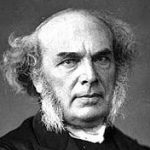Lesson Focus: This lesson is about finding in God’s presence, love, and direction a fresh hope for living joyfully. In Psalms 42 and 43, the psalmist related his quest for fresh hope amid dire circumstances.
Understand your Soul’s deep Desire: Psalm 42:1-5.
[1] As a deer pants for flowing streams, so pants my soul for you, O God. [2] My soul thirsts for God, for the living God. When shall I come and appear before God? [3] My tears have been my food day and night, while they say to me continually, "Where is your God?" [4] These things I remember, as I pour out my soul: how I would go with the throng and lead them in procession to the house of God with glad shouts and songs of praise, a multitude keeping festival. [5] Why are you cast down, O my soul, and why are you in turmoil within me? Hope in God; for I shall again praise him, my salvation. [ESV]
[1-3] The longing of the psalmist for God’s presence is clear from the figure of speech and the references to God. First, the symbol of the deer expresses the intense yearning for a taste of God’s presence. The deer looks until it finds water and quenches its thirst with great joy. It was easy for the psalmist’s readers to identify with the image of a thirsty deer. Human beings, at that time, knew what it was like to be without water and to long to find a stream (with little possibility of doing so in the summer, when few streams still flow) or to come to a canyon where one might expect to find a stream and to discover it dry. The verb pants indicates an intense desire for something. So the psalmist longs for God’s presence with his whole being. He thirsts for fellowship with God and will not be content until he can return to
[4] Adverse conditions create an optimum context for reflection. The psalmist cannot do much more than remember these things. What things did he remember? He meditated on the pilgrimages to the temple, the festive celebrations, and God’s triumphs in the history of salvation. During the three annual pilgrimage festivals (Passover, Firstfruits, and Tabernacles), the pilgrims gathered in
[5] The psalmist analyzes his feelings and asks questions of himself. The threefold refrain reflects the emotional state of many of God’s people during the exile and, for that matter, any crisis situation. The inner feelings express themselves in questions, despair, and hope in God. The questions are overtaking him. Yet while hemmed in by the questions in his desperate situation, he still could engage himself in dialogue. There was no voice from God. In the loneliness of alienation, faced with despair, his faith was tried, and it triumphed! True faith calmed his questions. Faith answered by turning the psalmist from despair to hope; a particular hope. His hope was in God,… my salvation and my God. Hope, in essence, is waiting for God to act, knowing that He will be faithful to His word. Hope is focused on the glorious acts of salvation and victory of which all of the Old Testament writers speak. Hope says, “You are my God,” in anticipation of the fulfillment of the promises, even when help is far off.
Depend on God’s Faithful Love: Psalm 42:6-11.
[6] My soul is cast down within me; therefore I remember you from the
[6-7] The psalmist has not yet won the argument with himself; the situation in verses 6-11 is the same as that in verses 1-5. Once again the psalm begins by addressing God [6-7], then moves to reflection [8-10], and finally comes back to argument [11]. The turning to God in verses 6-7 begins by expressing to God the terms of that argument in verse 5. But the psalmist now intends to take the argument further by another act of remembering, though the way this works out is a little paradoxical. Initially these verses offer another expression of pain that goes behind and beyond the one in verses 1-2. We know that the psalmist is unable to go to the temple. In the latter part of verse 6 that is apparently pictured as being as far away from the temple as it is possible to imagine while still being within the borders of the land.
[8-11] The idea of Yahweh issuing a command or commission to His steadfast (covenant) love anticipates the prayer in 43:3. The point of the verse is that day and night Yahweh will command commitment to His love and the psalmist will respond with the song of praise and worship [see verse 4]. It is probably better to see a prayer to the God of my life [8c] as the introduction to the prayer that follows in verse 9. The appeal to God as the God of my life takes up the thought of the living God in verse 2, but now personalizes it with the my. God is not just the living God; he is my living God; and He is my rock. The prayer will appeal to the God known in the temple as the source of life and known thus to the psalmist in particular. This God will surely respond to the prayer that follows. The prayer opens with two “Why” questions. The psalm has twice referred to the importance of “remembering” God and to the psalmist’s past with God. This remembering contrasts with God’s putting the psalmist out of mind (forgotten). Why does God’s present neglect so contrast with God’s past ongoing commitment? It is as a consequence of this neglect that the psalmist goes about gloomy and in the garb of a mourner. So what is the reason for the action of God that caused it? The last phrase in verse 9 parallels with the first phrase in verse 10 by focusing on the oppression of the enemy and the taunts of his adversaries. It appears that the enemy and the adversaries are the same group of people and that their attacks are the crashing of the waves that verse 7 referred to. This section [6-11] ends by returning to the internal argument that closed off the first section [1-5] with the psalmist asking himself two “why” questions and the recognition that his only hope is in the God who is my salvation and my God.
Follow God’s Light and Truth: Psalm 43:1-5.
[1] Vindicate me, O God, and defend my cause against an ungodly people, from the deceitful and unjust man deliver me! [2] For you are the God in whom I take refuge; why have you rejected me? Why do I go about mourning because of the oppression of the enemy? [3] Send out your light and your truth; let them lead me; let them bring me to your holy hill and to your dwelling! [4] Then I will go to the altar of God, to God my exceeding joy, and I will praise you with the lyre, O God, my God. [5] Why are you cast down, O my soul, and why are you in turmoil within me? Hope in God; for I shall again praise him, my salvation and my God. [ESV]
[1] Psalm 42 reached no resolution while Psalm 43 provides it with resolution in the sense that here the psalmist speaks with conviction as if having won the battle with the questioning inner person expressed in the refrain in Psalm 42. Resolution in the form of deliverance has not yet come, but the psalmist can live with things better than before. There was no actual plea in Psalm 42 but here verse 1 launches straight into a plea. But the plea concerns not the psalmist’s longing to be able to get back to Jerusalem to see God, nor the scornful questions, nor God’s own abandonment; instead, the plea concerns the enemy who makes that return both desirable and impossible, the one who reviles or provides the reason for the reviling and is the evidence of God’s abandonment. It appears that the psalmist is saying to God: Solve this problem, and all the others will be solved. The plea works within a legal framework, suggesting God seated in the court in the heavens. We know from 42:9 that the psalmist feels in the right over against the “enemy.” Further basis for that comes in the second line. It is a nation that does not keep commitment (an ungodly people). The parallel thought (deceitful and unjust man) expresses it in terms of a man (the leader or the kind of person who belongs to this ungodly nation) of deceit and wickedness. The two clauses, one referring to a people and one to an individual, now closes with a verb (deliver me) that applies to both thoughts.
[2-3] God in whom I take refuge recalls living God, God of my life, God, my rock. Why have you rejected me recalls the charge in 42:9 but suggests that the petitioner is indeed someone bringing a plea before a court, yet finding the court mysteriously unwilling to recognize the justice of the case. Verse 2 ends the same way as 42:9. This second plea to send out your light and your truth recalls Yahweh’s command of steadfast love in 42:8. These two (light and truth) are further personalized qualities or acts of God. The psalmist speaks of them the way one might ask for God to send a heavenly aide, one of the members of the court presupposed by the appeal in verse 1. But the aide is not merely someone who takes action on God’s behalf but also someone who explicitly embodies God’s own qualities, an inclination to shine brightly and warmly on people and an inclination to be truthful and steadfast. Indeed, the emissary thus brings God in person. Let them lead me … to your dwelling. The word dwelling is an intensive plural suggesting the special quality of this particular dwelling; in this case, the temple.
[4-5] Verse 4 makes the point even more explicit and concrete. The holy hill and dwelling of verse 3 is now the altar of God. Thus the object or destination of the journey is the temple. Coming to the altar need not imply that the suppliant is a person such as a priest; an ordinary person bringing a sacrifice brings it to the altar for the priest to offer. In this case the psalm will be referring to a thank-offering for the deliverance that the plea looks for. The second part of each line in this verse offers a description of the God to whom the psalmist comes and who is the object of the praise. Because God will have proved to be the living God, my salvation, God of my life, and my rock (against present appearances but in accordance with the psalmist’s faith), God can once again be God my exceeding joy … my God. The refrain is repeated for the third time (see 42:5 and 11). This is the answer to the psalmist’s problem: to hope in God. What the psalmist is to continually remember is that, based upon God’s character, he can always trust in Him no matter what his present condition might be. This is a great certainty. God has not changed. Therefore, His purposes for the psalmist have not changed. The psalmist will once again be able to praise in worship the God who is his salvation, who is his covenant God.
Questions for Discussion:
1. In 42:1-3, what was the pressing desire of the psalmist? How did he express the intensity of his desire? At this beginning of his psalm, was he feeling confident that he would have this desire satisfied?
2. The refrain is mentioned three times by the psalmist [42:5,11; 43:5], each time concluding a section of the psalm. What function does the two questions have in the refrain (the psalmist is arguing with himself, or “preaching” to himself)? What is his conclusion? How does this conclusion enable him to overcome his despair? What can you learn from these two psalms about how you can work your way out of times of despair and apparent hopelessness?
3. Note that the psalmist was able to turn from despair to hope because he had a foundational relationship with God built upon God’s covenant faithfulness to His people. The psalmist was able to remember these times which enabled him to wait upon his God to act on his behalf once again. Do you have this type of foundational relationship with your God that you can “remember” during times of struggle, hopelessness and despair? What are you doing to strengthen and grow this relationship?
References:
Psalms, Volume 2, John Goldingay, Baker.
Psalms, Willem Vangemeren, EBC, Zondervan.

















